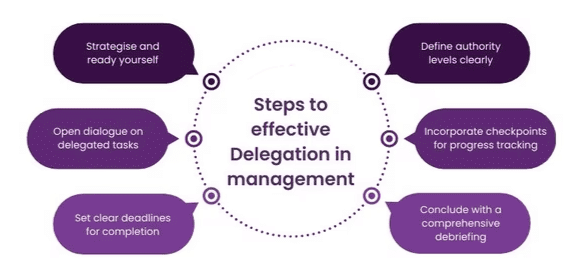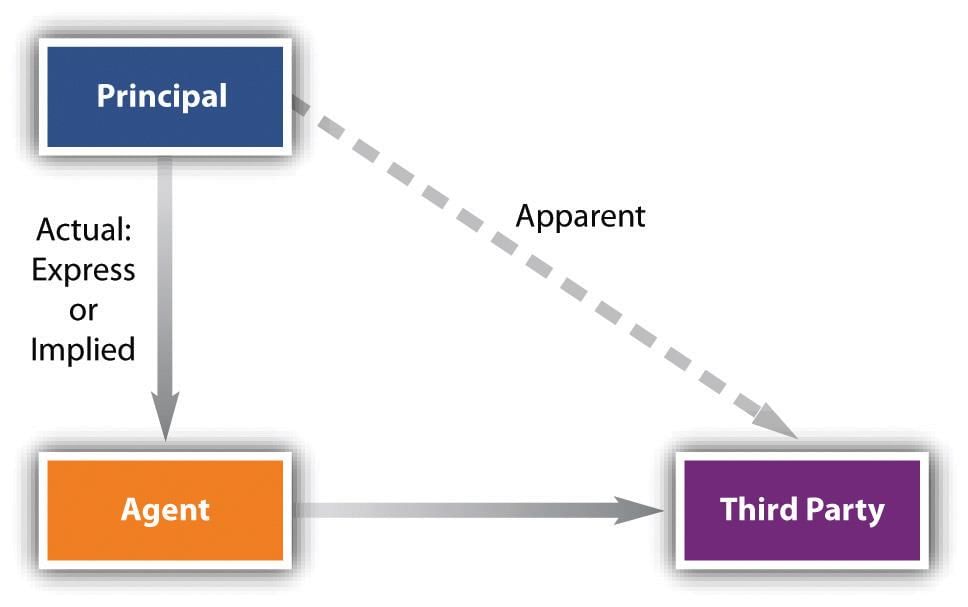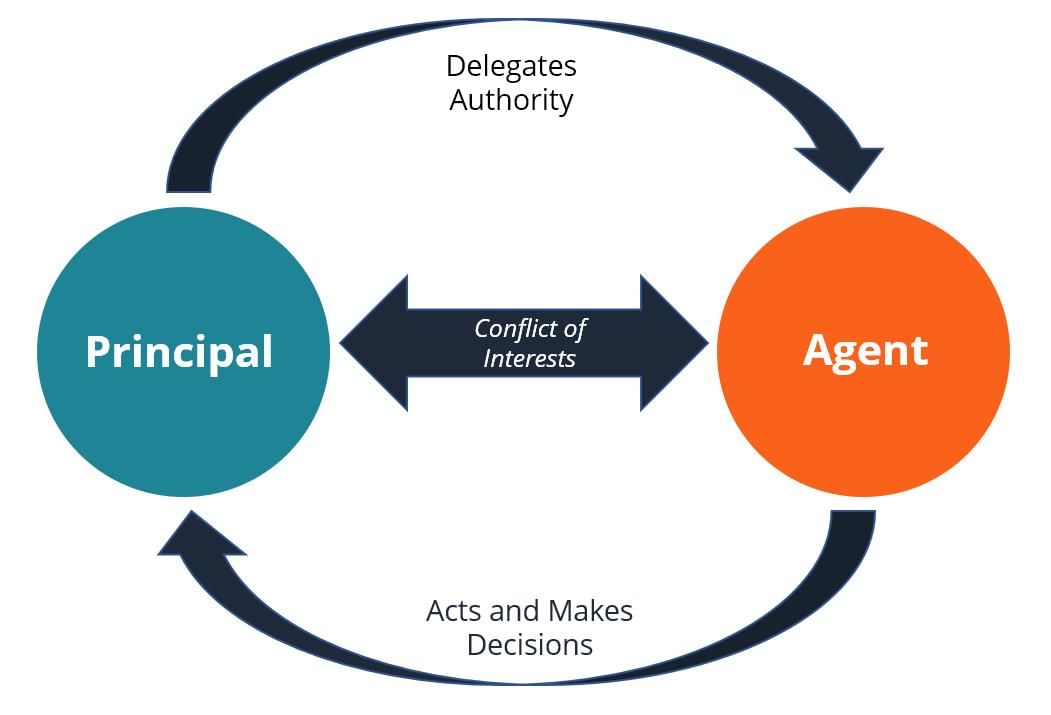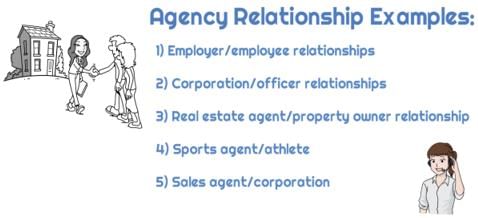|
Card: 1 / 40 |
Agency is formed when one party delegates authority to another party to perform actions on behalf of the first party. True or False? |
|
Card: 5 / 40 |
According to the Indian Contract Act, 1872, what governs the laws related to agency? |
|
Card: 11 / 40 |
Fill in the blank: An agent acts on behalf of the principal, either representing the principal in transactions with ___ or performing acts for the principal. |
|
Card: 14 / 40 |
Agency laws are significant because most business transactions globally are conducted through agency relationships. 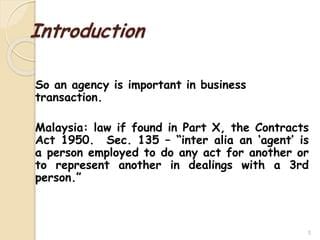 |
|
Card: 15 / 40 |
Illustration: If a businessman delegates someone to buy goods, what roles do the parties play? |
|
Card: 16 / 40 |
The businessman is the Principal, the person he delegates is the Agent, and the seller is the Third Party. 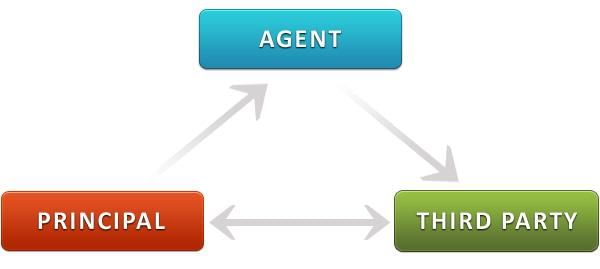 |
|
Card: 20 / 40 |
Any person who has reached the age of majority and possesses a sound mind can legally appoint an agent. 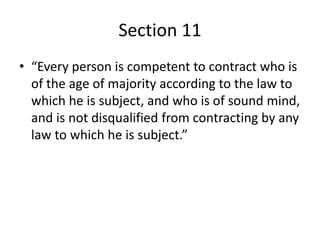 |
|
Card: 24 / 40 |
The principal is responsible for all lawful actions taken by the agent within the scope of the agent's authority. 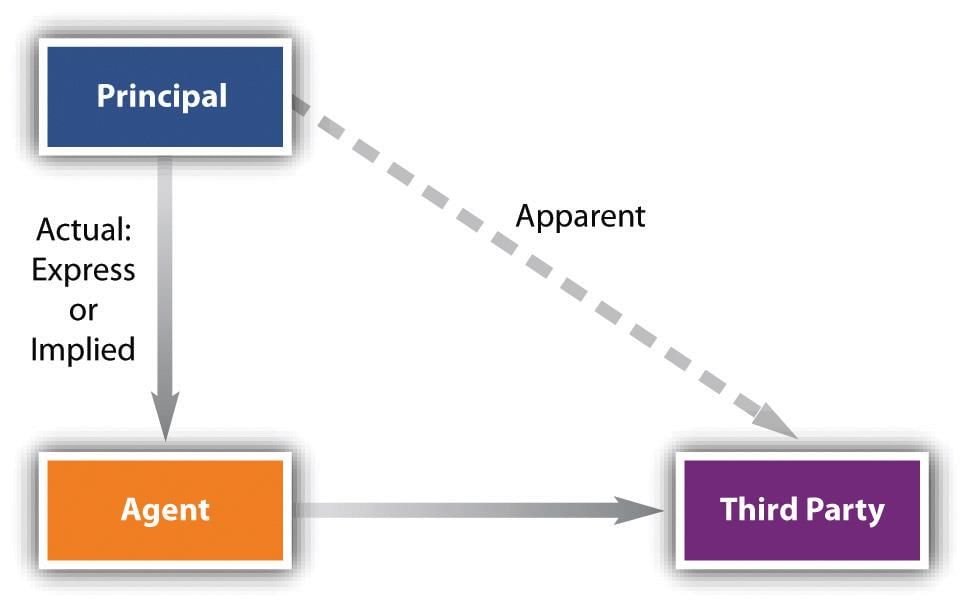 |
|
Card: 26 / 40 |
False. An agent is not liable to the principal if they are a minor or of unsound mind. 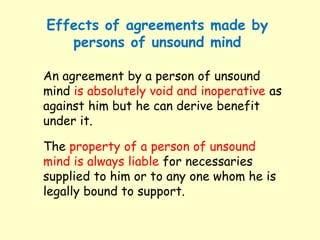 |
|
Card: 31 / 40 |
True or False: An agent can appoint a sub-agent without the principal's permission. |
|
Card: 32 / 40 |
False. An agent can only appoint a sub-agent with the permission of the principal. |
|
Card: 35 / 40 |
True or False: An agent can be a minor and still bind the principal in contracts with third parties. |
|
Card: 36 / 40 |
False. A minor cannot be an agent in a way that makes them responsible to their principal. |
|
Card: 37 / 40 |
What is the significance of power of attorney in relation to the principal's mental capacity? |
|
Card: 38 / 40 |
If the principal becomes mentally incapacitated after granting power of attorney, the authority granted becomes worthless. |




